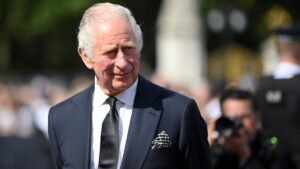Canadian Prime Minister Mark Carney has announced a newly reshaped cabinet, pledging to redefine the country’s economic and security ties with the United States while launching sweeping reforms to reduce reliance on its southern neighbor.
The cabinet, revealed in Ottawa on Tuesday, has been trimmed to 29 ministers—down from 39 under former Prime Minister Justin Trudeau—as part of Carney’s promise to run a leaner, more focused government. Key portfolios remain unchanged, with François-Philippe Champagne staying on as Finance Minister and Dominic LeBlanc continuing to oversee US trade relations.
In a notable shift, Foreign Affairs Minister Mélanie Joly has been reassigned to the Industry portfolio, with Defence Minister Anita Anand stepping in as the country’s new top diplomat. The realignment signals a stronger emphasis on economic competitiveness and industrial strategy amid rising cross-border tensions.
“This cabinet reflects a clear mandate from Canadians to build a stronger economy and to redefine our relationship with the United States,” Carney’s office said. “This is a focused team prepared to act with urgency and resolve.”
Carney’s administration faces immediate challenges. His recent meeting with US President Donald Trump in Washington ended without progress on lifting tariffs targeting Canadian exports. In response, Carney has argued for greater economic self-reliance, proposing billions in new investments, dismantling interprovincial trade barriers, and a rethinking of public finances.
Business leaders welcomed the direction. “The business of government must now be business,” said Matthew Holmes, policy head at the Canadian Chamber of Commerce. “We’re ready to work with this government to deliver on trade diversification and regulatory reform.”
Among the new appointments is former Goldman Sachs executive Tim Hodgson, who replaces Jonathan Wilkinson as Natural Resources Minister. Chrystia Freeland, who stepped down as Finance Minister last year, returns as Minister of Transport and Internal Trade. Ten junior secretaries of state were also named.
Carney outlined immediate legislative goals: implementing a middle-class tax cut and eliminating trade barriers between Canada’s provinces by 1 July. His government plans to spend C$130 billion over the next four years, with the federal deficit projected to reach C$62.3 billion in 2025-26—up from the C$42.2 billion forecast in December.



























